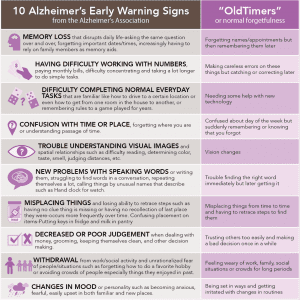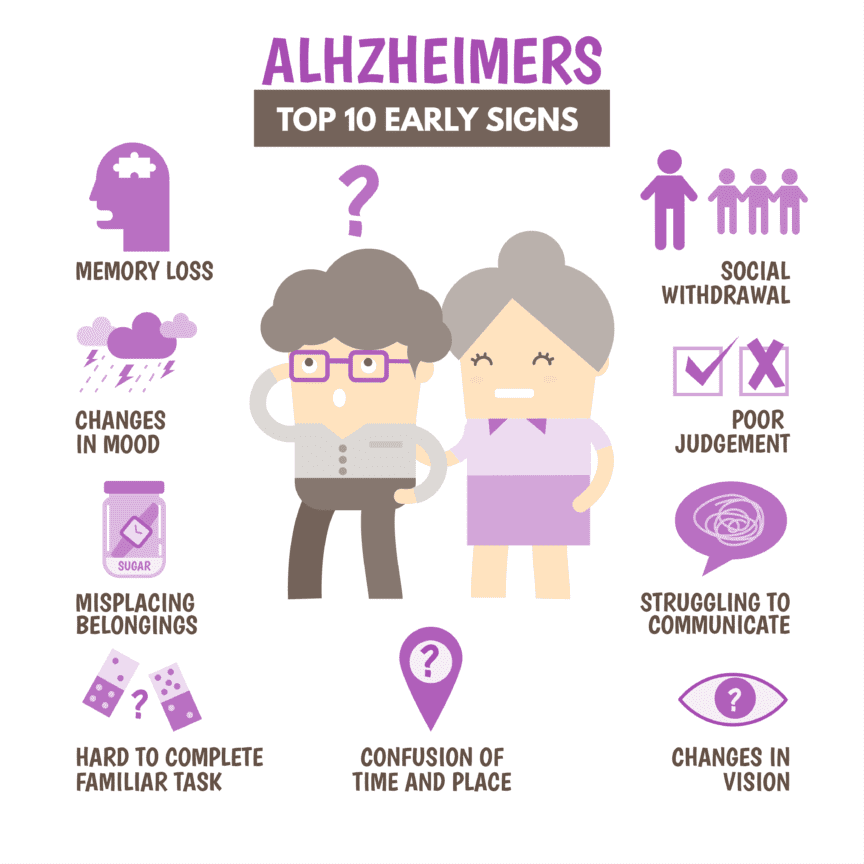One of the greatest fears humans face today is the loss of our mental capabilities, and yet it is happening more and more at an alarming rate. Some of the questions I hear often is “Is this Alzheimer’s?” How do you know if it is age related cognitive decline known as “oldtimers”, early onset dementia, or Alzheimer’s Disease? What can I do to combat this memory loss?
Dementia is a syndrome and not a disease. Dementia is an umbrella term which encompasses a group of symptoms that affects mental cognitive tasks such as memory and reasoning. Dementia can occur due to a variety of things, one of which is Alzheimer’s disease. The causes of the rate of large memory losses are still up for debate depending on who you talk to but one thing we know from research findings is that a low sugar, low wheat diet such as a Mediterranean Diet is helpful in slowing the progression of the disease and that deliberate brain training can help with this also. One of the most invigorating and helpful physical exercises is gardening.
 The biggest factor with all of these is Quality of Life (QOL) measures which affect not only the individual but also the caregivers and associated family members. Research has indicated that having professionals involved in the daily care/ activity of those suffering actually increases the QOL of all involved. Interventions that assist in maintaining mobility, physical activity and mental/cognitive function actually make a difference in longevity and QOL. Focused cognitive training with a professional brain trainer actually had more long-lasting results than that of any computer intervention or mild stimulus interventions according to the most recent research. The Alzheimer’s related brain changes can start as early as age 40 and factors that influence this plaque building brain disease include high levels of inflammation such as those caused by repeated head trauma as well as low dopamine levels.
The biggest factor with all of these is Quality of Life (QOL) measures which affect not only the individual but also the caregivers and associated family members. Research has indicated that having professionals involved in the daily care/ activity of those suffering actually increases the QOL of all involved. Interventions that assist in maintaining mobility, physical activity and mental/cognitive function actually make a difference in longevity and QOL. Focused cognitive training with a professional brain trainer actually had more long-lasting results than that of any computer intervention or mild stimulus interventions according to the most recent research. The Alzheimer’s related brain changes can start as early as age 40 and factors that influence this plaque building brain disease include high levels of inflammation such as those caused by repeated head trauma as well as low dopamine levels.
Again, this research is ongoing and there is not a definitive test available at this point that indicates Alzheimer’s with certainty. Rather, it is a set of symptoms. So what are the best things to do? Be aware of head trauma and get intervention to address this early on, be cognizant of dietary factors that affect dopamine levels, and do preventative interventions such as brain training throughout life.
The biggest DOs are…
DO get a cognitive test for yourself and your loved ones early on so that you will have a baseline to measure against should these concerns arise. There are lots of professionals who offer this at a reasonable cost in the immediate area including LearningRx.
DO be deliberate about doing intervention activities such as family brain game nights & brain training games/activities. For a free sampler, contact LearningRx.
DO be deliberate about your dietary and exercise regimen. Many healthcare professionals out there now have lifestyle health coaching that address these factors.
DO a follow up cognitive test if any family member has any type of hit to the head…as this can lead to further difficulties down the road especially if your child is involved in sports known for head trauma such as football, hockey, lacrosse, soccer, baseball and even cheerleading or tumbling. Most insurance companies cover this type of testing to some extent.
DO engage a professional cognitive skills trainer such as those at LearningRx if you or a family member struggles with memory loss due to any of the aforementioned factors.
DO see a qualified healthcare professional such as neurologist or psychologist if you find any of the above factors are affecting your QOL or that of a loved one.

